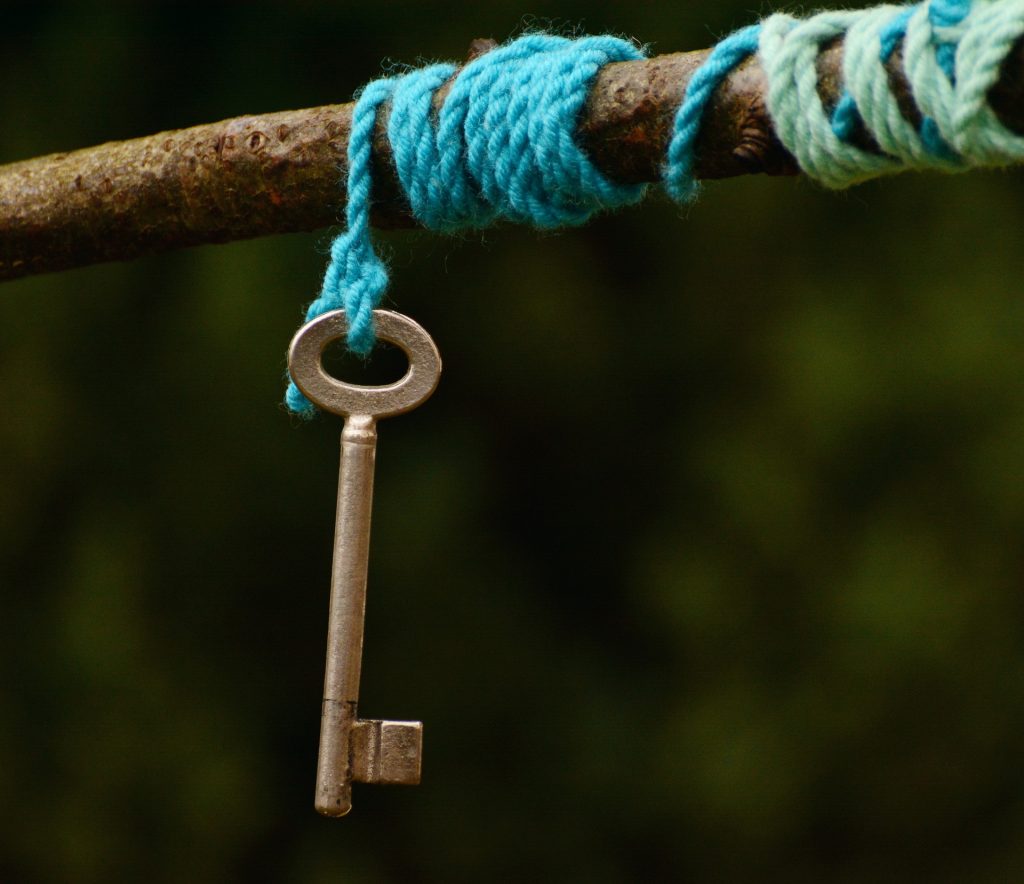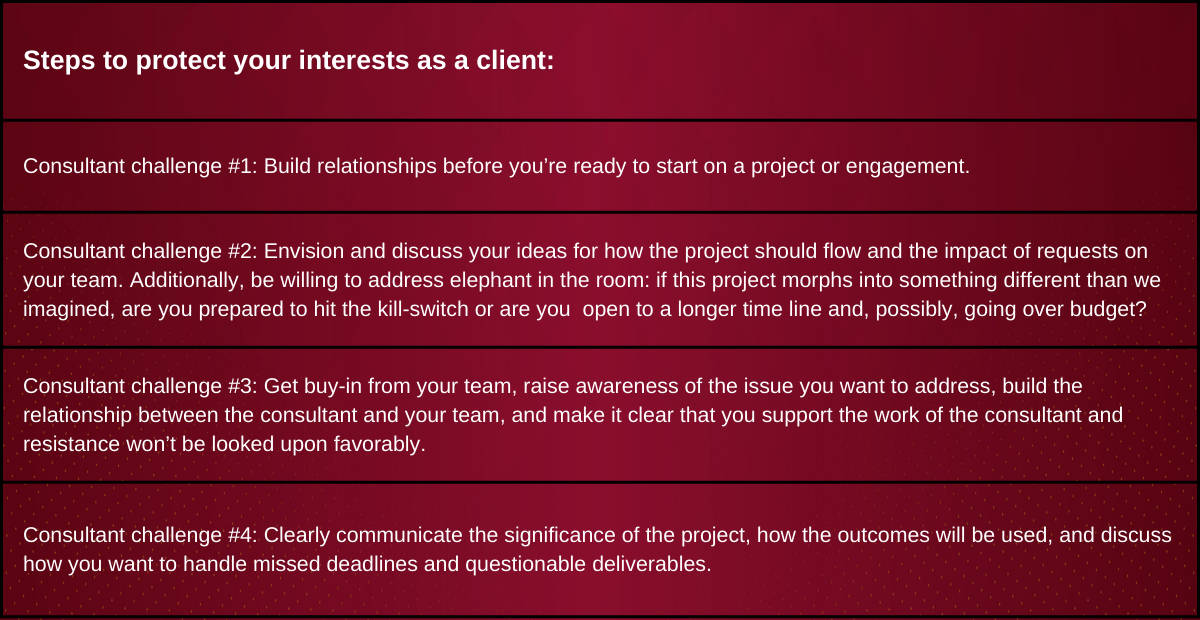Get Better Results from Your Consultants

Have you ever completed an engagement with a consultant and thought, “I got what I paid for, but I didn’t get what I wanted. How do I get better results from a consultant”?
If you’re an experienced leader in an organization, I bet you have at least one story about engaging a consultant and not getting exactly what you’d hoped for. It’s likely that the consultant didn’t think the engagement was the best experience either. What’s more is that there are too few situations whereby the client and consultant have real conversations about what they wish had happened differently. So, how do you get better results from your leadership consultant (or any type of consultant that you engage)?
On the consultant’s end, there are four key challenges that impact your ability to get better results from your engagement with them:
- Short notice contracts with clients they have not worked with previously;
- Failure to address the following gaps:
- The gap between the solution the client specifically asked for and the problem that solution is designed to address versus what the problem seems to actually be (are they using the wrong solution for the problem?).
- The gap between the client’s request and what appears to be necessary fully address the problem (is the solution they’ve requested going to resolve the problem?).
- Gaps between what the client paid for and the work the consultant is doing (is the consultant doing more or less work than what’s covered in the agreement?).
- Being silent about how the client’s team or bureaucracy is affecting the work (is the team doing what they need to do so that the consultant can deliver and deliver on time?)
- Accepting to a reach project while underestimating the amount of time needed to learn and do the work and being unclear about how the project will affect costs and capacity.
Although there is some degree of mutuality here, the consultant has a responsibility to communicate about these challenges. As a client, you can increase your chances of getting better results from your consultants by taking the steps below:

Steps to get better results from your consultants.
As you consider the pro-active steps above, below are a few tips to help you develop a healthy attitude toward building relationships with external experts.
- Instead of relying on norms about what a consultant is supposed to do, focus on articulating your needs and building the unique relationship and custom contract you need. Think of it this way: build a consulting partnership like romantic partners who know they are better off when they decide what works for them where they are right now rather than doing what they’ve seen other couples do or duplicating what they’ve done in previous relationships.
- Resist working with a new consultant when you need something done in a hurry. When you choose a consultant in a rush, it’s a stressful experience for everyone. You’re stressed out because you don’t know or trust the person and you’re unsure if they really understand your needs. Your team is also more likely to feel unsafe. Likewise, the consultant is likely to feel stressed because they don’t know you either and probably aren’t 100% certain that you two are on the same page. They may have heard what you said, but it doesn’t mean they understood what you meant.
- Decide if you want a pure coach, a pure consultant, or a hybrid. A coach works with you. A consultant works with your team/organization. A hybrid does both. My best client relationship, to date, was with the leader of an organization that I initially supported as a consultant. Over time, the head of the organization became a coaching client. It was a wonderful arrangement because I’d built trust with the team and the leader had an opportunity evaluate my work. Identifying skilled and credible consultants takes work; therefore, it’s more efficient to establish relationships with professionals who can help you in multiple ways.
- Be frank about money. You want to access to expertise, but you don’t want to be terrified of opening files entitled “invoice”. Even if you articulate your goals and think you’ve found a win-win, expect to have some clarifying discussions about money in the early days of the engagement. Finally, if the prospective consultant won’t have more than one free exploratory conversations with you, think about what that tells you, and ask more questions!
- Accept that engaging a consultant means more communication with your team. In particular, discuss the methods and tools the consultant will use to glean information from your team, be proactive about confidentiality concerns, and how the consultant’s work will be utilized. Throughout the engagement, reiterate to the team how their cooperation impacts the success of the work.
- Expect conflict and resistance. Part of the consultant’s job is to ask tough questions, point out inconsistencies, and highlight counter-productive practices and behaviors. Whether it’s you or people on your team, this kind of feedback can be hard to hear and accept. Meanwhile, don’t forget that the final decision about how to use their work product or advice belongs to you.
Working with a leadership consultant should not be a burdensome experience. If you don’t view the relationship as one of trust and that adds all around value, figure out why. Sometimes, it is the consultant; sometimes, it’s you. Whatever you do, don’t spend the money or sign the contract until you do your part to get better results from your consultants.





